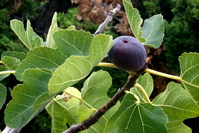Strawberry Woes: Compost to the Rescue

Most commercial strawberry growers rely on heavy applications of methyl bromide or similar fumigants to combat black root rot, an endemic problem for strawberries. New agricultural research shows that growing strawberries in compost medium can substitute for soil fumigation. Fumigants, in addition to their toxicity and negative effects on the soil ecosystem, are increasingly expensive. Many small-scale growers cannot afford fumigants, yet the poorer yields of associated with black root make going without it unaffordable as well.
Mesh tube bags, sold commercially under a variety of names, were filled with compost and set up with drip irrigation. The strawberry plants were set directly into the compost tubes, and did not pick up the black root from the infected soil. Yields were increased a whopping 16 to 32 times!
In a lovely example of synergy, not only does this represent a more natural and affordable method for strawberry culture, the method frees growers from the ubiquitous use of black plastic. Acres and acres of black plastic are used to mulch between rows in large-scale operations. The tube bags, sometimes called "socks" are available in a wide variety of materials, including natural materials such as cotton or burlap, and biodegradeable plastic meshes.

In the photo above, I've taken a wide shallow planter and used some landscape edging to add a second tier to it. Making a multi-level strawberry planter with compost in mesh tubes would be even easier. I could try adding strawberry plants in a compost mesh tube as a raised edging on my planter beds, or around the base of the beds on top of the chip mulch I use to suppress weeds. I'll have to try that!
Labels: compost, natural alternatives, root rot, strawberry









0 Comments:
Post a Comment
<< Home